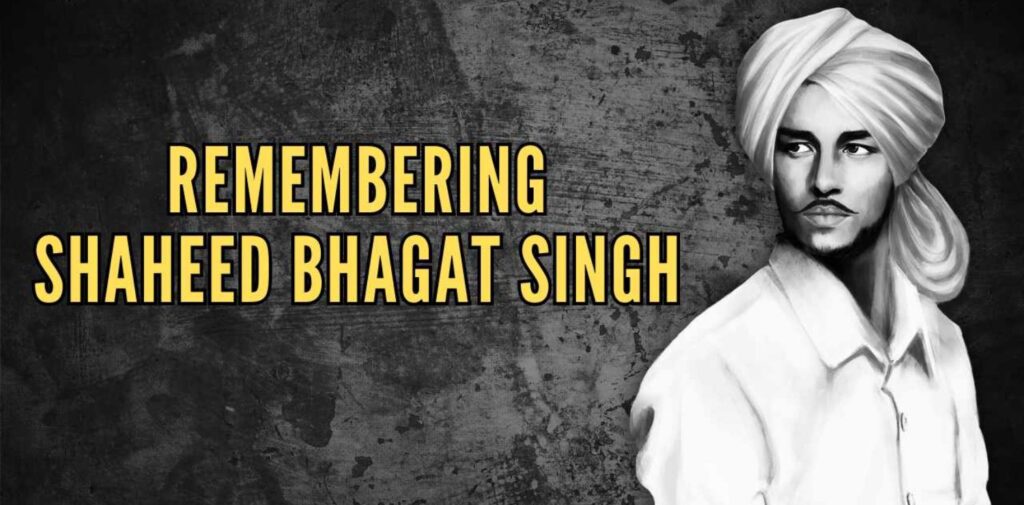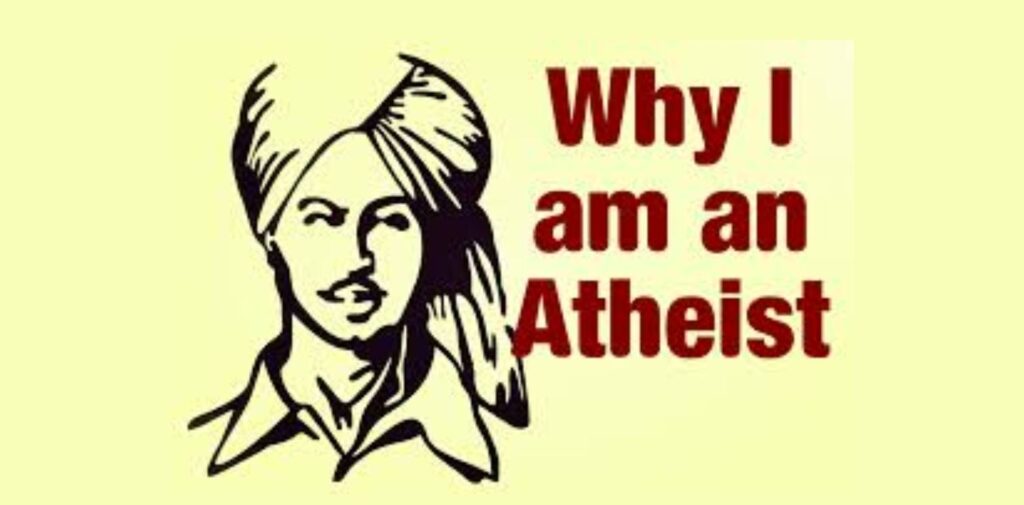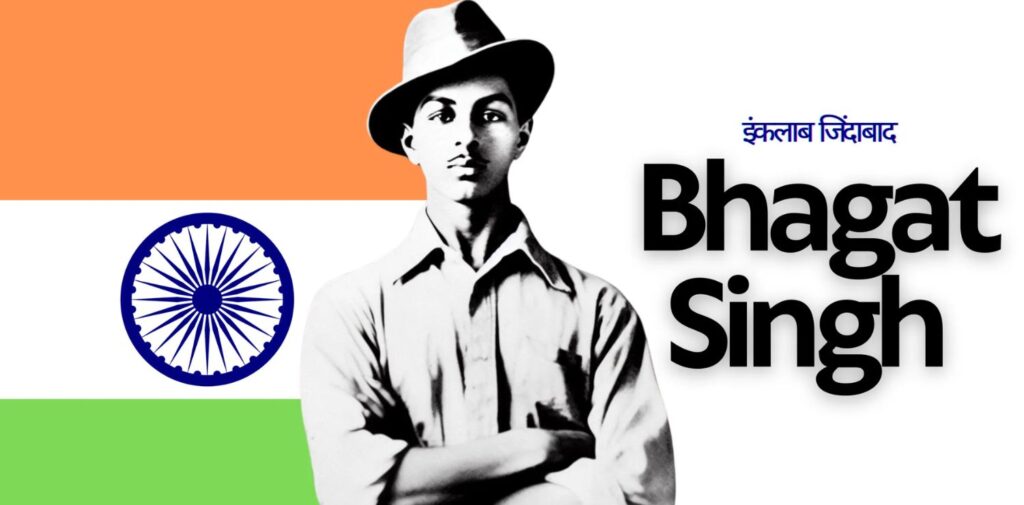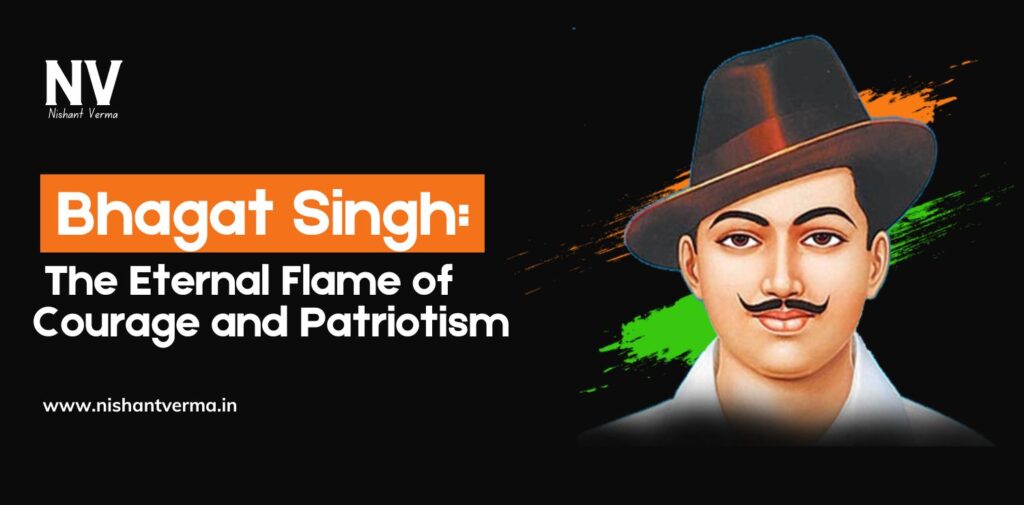On September 28th, the birth anniversary of Shaheed Bhagat Singh, we remember one of the greatest freedom fighters India has ever produced. Born in 1907, in the small village of Banga in Lyallpur district, now in Pakistan, Bhagat Singh’s name became synonymous with revolutionary fervor and selfless sacrifice for the country’s independence. His contributions to India’s freedom struggle were not merely through acts of bravery but also through his powerful writings, which served as an intellectual foundation for the movement. This article pays tribute to the courage, ideals, and legacy of Bhagat Singh.
Early Life and Inspiration
Bhagat Singh was born into a Sikh family deeply involved in the independence movement. His father, Kishan Singh, and his uncle, Ajit Singh, were staunch followers of the freedom struggle. The young Bhagat was inspired by the tales of valor from his family members and leaders like Kartar Singh Sarabha and Lala Lajpat Rai. By the time he was 12, he had already witnessed the horrors of the Jallianwala Bagh massacre in 1919, which left a deep impression on his young mind. The incident made him commit to fight against British rule.

Bhagat Singh’s decision to pursue revolutionary activities over a conventional lifestyle was further solidified after the death of Lala Lajpat Rai, who succumbed to injuries inflicted by the British police during a peaceful protest. This incident planted the seeds of vengeance in Bhagat’s mind and paved his way to become a revolutionary nationalist.
His Role in the Hindustan Socialist Republican Association (HSRA)
At a young age, Bhagat Singh joined the Hindustan Socialist Republican Association (HSRA), which advocated for the complete independence of India through direct action. This group, along with Chandrashekhar Azad, Sukhdev, Rajguru, and other revolutionaries, aimed at mobilizing the youth of India and awakening them to the cause of the nation’s freedom.
He was also part of the Naujawan Bharat Sabha, an organization dedicated to promoting nationalistic and social reform among the youth. Bhagat Singh was a firm believer that political revolution must go hand-in-hand with social reforms. His philosophy wasn’t just limited to driving the British out of the country but also eradicating poverty, caste discrimination, and illiteracy in India.
The Assembly Bombing Incident
Bhagat Singh’s name became a household one after the Central Legislative Assembly bombing on April 8, 1929. His objective wasn’t to kill anyone but to make a statement. Along with Batukeshwar Dutt, Bhagat Singh hurled non-lethal bombs into the Assembly and shouted slogans like “Inquilab Zindabad” (Long live the revolution). They also scattered leaflets that outlined their reasons for the act, emphasizing that it was meant to protest the draconian laws being passed by the British, not to harm individuals.
The incident electrified the nation. Singh and Dutt voluntarily surrendered to the police, declaring that it was necessary to let the world know that Indians would no longer silently accept oppression. His court statements, the way he stood up to cross-examinations, and his dignity in accepting the charges against him made Bhagat Singh a symbol of unyielding courage.
Ideological Contributions and Writings
Though Bhagat Singh was a revolutionary, his ideologies were shaped by a firm intellectual foundation. He was a voracious reader and an eloquent writer. While in prison, he penned numerous articles and letters that revealed his belief in Marxism, socialism, and atheism. His essay “Why I am an Atheist” is a profound piece that shows his clear and rational mind, a reflection of his deep understanding of human nature and his disdain for superstition.

Bhagat Singh argued that for true freedom to prevail, the country needed to free itself from the shackles of both foreign oppression and internal exploitation. He wanted to see an India free from class divisions, economic inequality, and religious biases. His vision of independence was much broader than merely ending British rule—it was about transforming Indian society from within.
The Lahore Conspiracy Case and His Execution
Following the Assembly Bombing, Bhagat Singh was implicated in the Lahore Conspiracy Case, which pertained to the murder of British police officer John Saunders. Saunders was killed as a response to Lala Lajpat Rai’s death. Bhagat Singh, along with Rajguru and Sukhdev, was sentenced to death by hanging.
The trial was conducted with a clear bias, ignoring basic legal principles and the lack of evidence. Despite this, Bhagat Singh used the courtroom as a platform to speak about his revolutionary ideals. His statements during the trial were bold, brave, and filled with wisdom. He became a hero to the youth of India and a symbol of resistance against colonial rule.
On March 23, 1931, Bhagat Singh, Sukhdev, and Rajguru were hanged to death. His death sparked widespread protests, and the country mourned the loss of its brave son. Bhagat Singh’s execution was meant to crush the revolutionary movement, but instead, it inflamed the fire of independence all over India.
The Legacy of Bhagat Singh
Bhagat Singh’s contributions to India’s freedom struggle extend beyond his acts of bravery. His thoughts on socialism and secularism laid the groundwork for future movements in India. His belief that “Revolution is not a cult of bomb and pistol but a broader philosophy to bring about significant change” reflected his understanding that the struggle for freedom must be supported by an intellectual revolution as well.
Even today, Bhagat Singh is celebrated as the epitome of patriotism. He is remembered as a visionary who thought ahead of his time and a fighter who willingly gave up his life for his nation. He continues to be an inspiration for countless Indians and serves as a beacon of courage, sacrifice, and unwavering love for the country.
What Makes Bhagat Singh Relevant Today?
In contemporary times, Bhagat Singh’s ideology still resonates with India’s youth. His fearless attitude, his willingness to question established norms, and his intellectual rigor serve as an example for everyone aspiring to bring change. In an era where freedom of thought and expression are continually challenged, Bhagat Singh’s life reminds us of the importance of standing up for what is just and right.

His advocacy for a society based on equality, justice, and rationality is still relevant, given the prevailing social and economic inequalities. His life teaches us that true patriotism goes beyond waving flags and chanting slogans—it is about challenging injustice and striving for a better society.
Conclusion
Bhagat Singh was not just a revolutionary who fought for India’s freedom; he was a thinker, a writer, and an ideologue. His bravery, his willingness to sacrifice his life at such a young age, and his articulate expression of the ideals he believed in make him an eternal flame in the history of India’s freedom struggle.
As we celebrate his birth anniversary on September 28, let us remember not only his courageous acts but also his deep philosophical insights. Let us be inspired by his vision for a better, freer, and more equitable India. Bhagat Singh’s life is a testament to the power of youth, the strength of conviction, and the ultimate sacrifice one can make for the love of the motherland.




